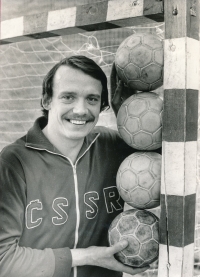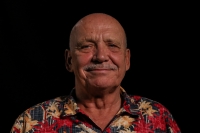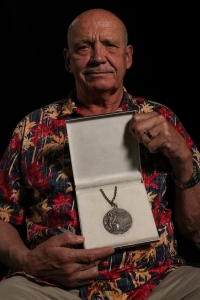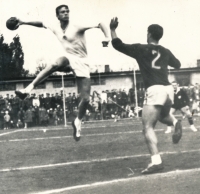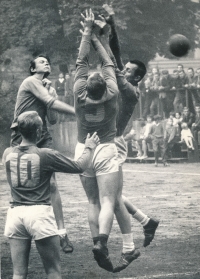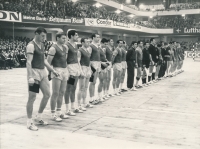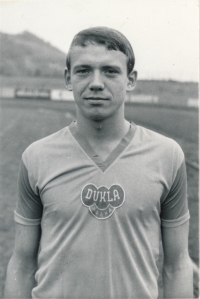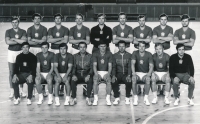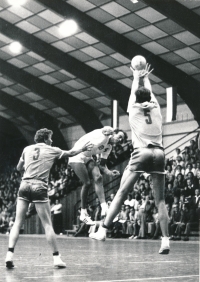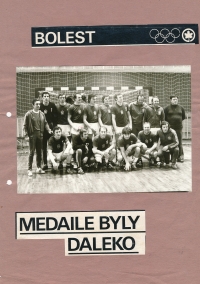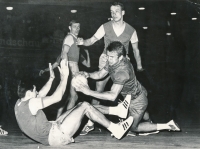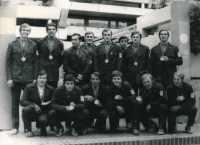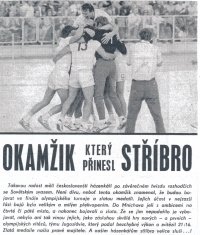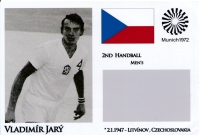I wouldn’t wish Štrougal to hear what Jirka Vícha said before the game with the Russians

Download image
Vladimír Jarý was born on 2 January 1947 in Litvínov. He had two older brothers who were born in Prague during the Second World War. In 1946, the family moved to Litvínov, where they got a large, nice apartment left by the displaced Sudeten Germans. His father worked in the apprenticeship of the Litvínov Chemical Works, and his mother worked as a clerk at the town national committee. Vladimír Jarý had a happy childhood, but his life in Litvínov was spoiled by bad air caused by industrial exhalations. From an early age, he played sports, he went to Sokol, played hockey for two years, and then switched to basketball and handball. He combined both sports until he was 19. He joined the adult handball team at the age of 17, playing in the second league with Litvínov. At the age of 20, he graduated from the mechanical engineering school. He joined the Dukla Prague handball team, where he played in the first league alongside several world champions. After the war, he went to Škoda Plzeň. In 1970, he made his way to the national team, where he played clutch as well as in the club. In 1972, he went with the national team to the Summer Olympics in Munich, where he was shaken by the terrorist attack by Palestinian commandos on the Israeli team. He saw with his own eyes the masked terrorists in the Olympic Village. The Olympics resumed after the interruption, and the Czechoslovak handball team won silver medals, beating the Soviet Union in the battle for the final. In the 1973/74 season, Vladimír Jarý won the Czechoslovak championship with Škoda Plzeň. He made it to the 1976 Montreal Olympics, where the team finished seventh. A year later, he retired from the national team. After 1989, he coached handball in Bavaria and also worked on construction sites there. In 2021, he was living in Pilsen.
